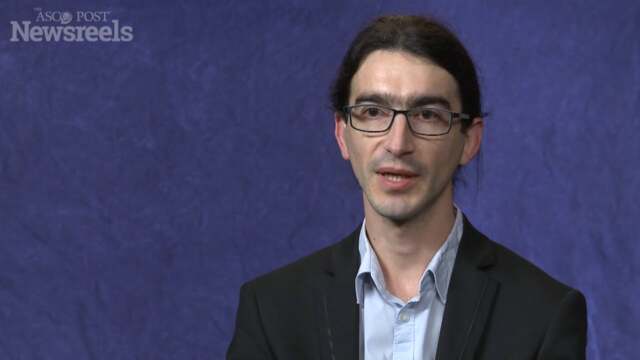Eileen M. O’Reilly, MD, on Pancreatic and Hepatobiliary Cancers: Selecting High-Impact Targets
2017 Gastrointestinal Cancers Symposium
Eileen M. O’Reilly, MD, of Memorial Sloan Kettering Cancer Center, discusses a range of topics, including tyrosine kinase inhibitors, immune therapies, targeted approaches, and DNA damage repair strategies.
Sarah E. Hoffe, MD, of the Moffitt Cancer Center, discusses the controversial role of radiation in the treatment of pancreatic cancer, recent advances in delivering short courses of high-dose stereotactic body radiation therapy, and how best to integrate this new modality in borderline and locally advanced disease.
Karyn A. Goodman, MD, of the University of Colorado School of Medicine, discusses initial study findings on PET scan–directed combined-modality therapy for esophageal cancer (Abstract 1).
Ignacio Melero, MD, PhD, of the University Clinic of Navarra, Centre of Applied Medical Research, discusses in Spanish study findings on nivolumab dose escalation and expansion in patients with advanced hepatocellular carcinoma (Abstract 226).
Masanori Terashima, MD, PhD, of Shizuoka Cancer Center, discusses phase III study findings evaluating bursectomy for patients with subserosal/serosal gastric cancer (Abstract 5).
Julien Edeline, MD, of the Centre Eugène Marquis, discusses study findings on gemcitabine and oxaliplatin vs surveillance following surgery for localized biliary tract cancer (Abstract 225).





